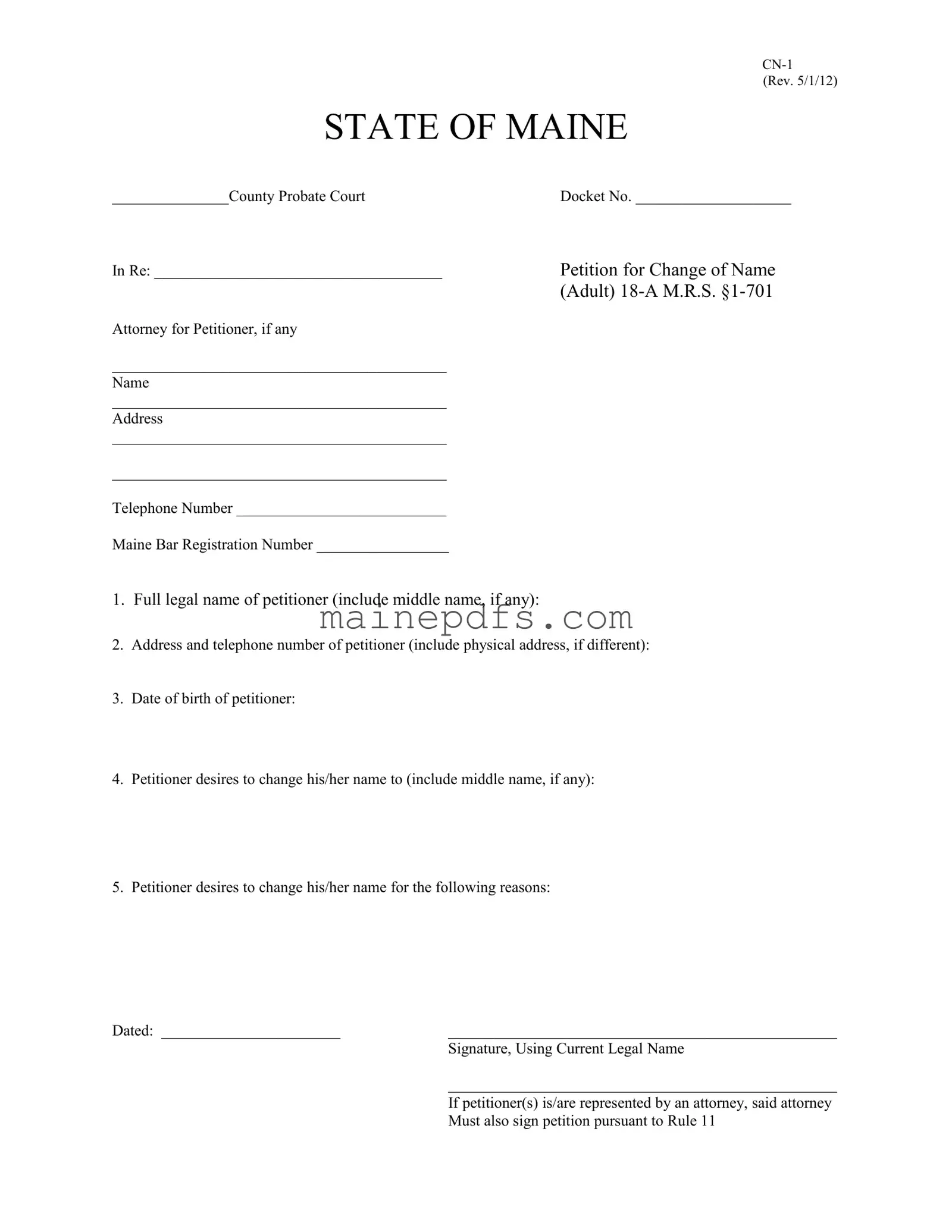The CN-1 form utilized in Maine for an adult's name change is quite similar to the Application for Name Change in California (NC-100). Both forms serve the fundamental purpose of legally altering an individual's name, requiring key personal information such as the current legal name, desired new name, reasons for the name change, and contact information. Furthermore, they necessitate the petitioner's signature and, if applicable, the representation of an attorney. The primary difference lies in their jurisdictional usage, with each form being specific to its state laws and guidelines surrounding the name change process.
Another analogous document is the Petition for Name Change format used in the New York State courts. This document, like Maine's CN-1 form, is designed to facilitate the legal name change process for individuals by collecting similar information such as the current name, proposed new name, and the rationale behind the desire for a name change. Both documents are submitted to a court, initiating a legal process that ultimately requires a judge's approval. The forms act as formal requests for judicial consent, ensuring that the name change is documented and legalized through the court system.
The Texas Petition for Change of Name of an Adult shares resemblances with the Maine CN-1 form, in that it is also a legal document filed with the court for the purpose of changing one's name. It captures essential information including the petitioner's current name, desired new name, date of birth, and the reasons behind the name change. Both forms are structured to comply with respective state statutes that govern the name change process, ensuring the petitioner follows the correct legal protocol. The forms serve as a notification to the court of the individual’s intent to change their name and kickstart the legal proceedings required for the change to be recognized officially.
Similarly, the Adult Name Change Petition used in the state of Florida bears resemblance to Maine's CN-1 form. Both are integral to the name change process within their respective states, requiring comprehensive personal information that includes but is not limited to the individual’s current legal name, new desired name, and the reasons for the name change. These forms are critical steps in fulfilling the legal requisites imposed by state laws for an individual seeking to change their name, with the ultimate purpose of having the change legally acknowledged and recorded.
Last but not least, the Illinois Request for Name Change (Adult) mirrors the purposes and requirements found in Maine's CN-1 form. Both documents are crafted to adhere to state-specific guidelines concerning legal name changes for adults, mandating details such as the petitioner's current name, requested new name, and the motives behind the name change request. They underline the importance of legality and official documentation in altering one’s name, emphasizing the procedure’s significance not just on a personal level but within the broader context of state and legal recognition.

